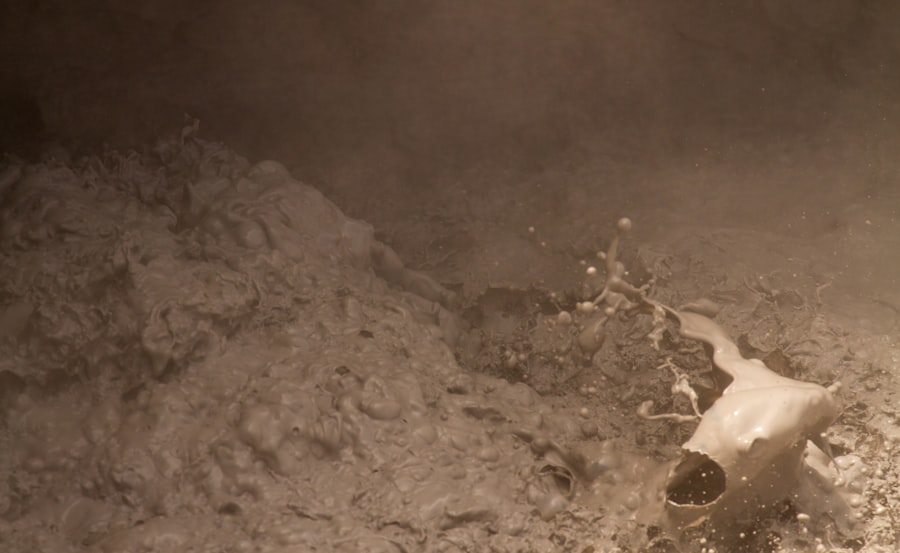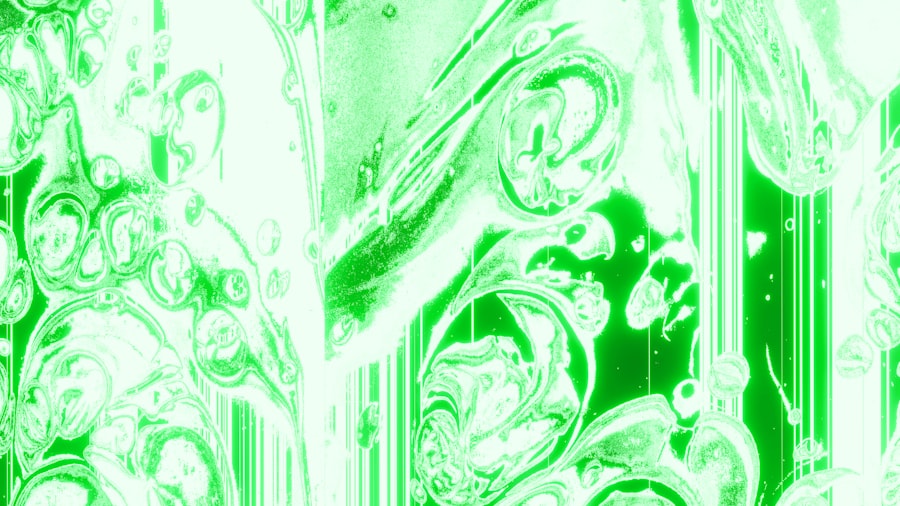The Cold War, a period marked by geopolitical tension between the Soviet Union and the United States, was not only a battleground for ideological supremacy but also a significant era for scientific advancement. During this time, scientific research was often intertwined with military objectives, leading to groundbreaking discoveries as well as morally questionable practices. The race for technological superiority spurred innovations in various fields, including aerospace, nuclear physics, and medicine.
However, the pursuit of knowledge was frequently overshadowed by ethical dilemmas, as governments sought to harness science for strategic advantages. As nations competed for dominance, the implications of scientific research extended beyond the laboratory. The Cold War fostered an environment where ethical boundaries were blurred, and the quest for power often took precedence over human rights.
This article delves into the darker aspects of Cold War science, exploring the unethical experiments conducted on human subjects, the weaponization of biological and chemical agents, and the psychological manipulations employed by governments. By examining these facets, one can better understand the complex legacy of this tumultuous period and its lasting impact on contemporary society.
Key Takeaways
- Cold War science involved unethical experiments on human subjects, weaponization of biological and chemical agents, and psychological experiments for mind control.
- Government and military played a significant role in promoting unethical science during the Cold War, leading to the legacy of public health issues and the use of unethical science in warfare.
- The impact of Cold War science on international relations was significant, with continued repercussions of unethical experiments still being felt today.
- The ethical implications of Cold War science are profound, and it is important to learn from the dark side of this era to prevent similar mistakes in the future.
- The legacy of Cold War science on public health and the use of unethical science in warfare have had lasting effects, highlighting the need for continued awareness and vigilance.
Unethical Experiments on Human Subjects
One of the most disturbing aspects of Cold War science was the prevalence of unethical experiments conducted on human subjects. In the name of national security and scientific advancement, individuals were often subjected to tests without their consent or knowledge. The infamous Tuskegee Syphilis Study, although initiated before the Cold War, exemplified a broader trend that continued into this era.
Vulnerable populations, particularly marginalized communities, became unwitting participants in experiments that prioritized data collection over ethical considerations. In addition to the Tuskegee Study, various government-sponsored projects sought to explore the limits of human endurance and psychological manipulation. The CIA’s MKUltra program is perhaps the most notorious example, involving experiments with mind-altering drugs such as LSD on unsuspecting individuals.
These experiments aimed to develop techniques for interrogation and mind control, reflecting a chilling disregard for human rights. The legacy of such unethical practices has left deep scars on public trust in medical and governmental institutions, raising questions about informed consent and the moral responsibilities of researchers.
Weaponization of Biological and Chemical Agents

The Cold War also saw a significant escalation in the weaponization of biological and chemical agents. Both superpowers invested heavily in developing arsenals that could incapacitate or eliminate adversaries through covert means. The use of agents like anthrax and nerve gas was not merely theoretical; extensive research was conducted to understand their effects and enhance their lethality.
This arms race led to a chilling reality where science was repurposed from a tool for healing to one of destruction. The implications of these developments were profound. The potential for mass casualties raised ethical questions about the responsibility of scientists and governments in creating such weapons.
Moreover, the environmental impact of testing these agents often went unaddressed, leading to long-term consequences for ecosystems and public health. As nations stockpiled these dangerous substances, the specter of biological warfare loomed large, prompting international efforts to regulate and eventually ban such practices through treaties like the Biological Weapons Convention.
The Role of Government and Military in Unethical Science
| Government and Military | Unethical Science |
|---|---|
| Funding | Supporting unethical research projects |
| Regulation | Failure to enforce ethical standards |
| Collaboration | Partnership with unethical scientists |
| Secrecy | Concealing unethical experiments |
The intertwining of government interests with scientific research during the Cold War created a unique landscape where military objectives often dictated the direction of scientific inquiry. Funding for research projects frequently came with strings attached, compelling scientists to align their work with national security goals. This relationship fostered an environment where ethical considerations were sidelined in favor of expediency and strategic advantage.
Military institutions played a pivotal role in shaping scientific agendas, often prioritizing projects that promised immediate benefits for defense capabilities. This dynamic not only compromised the integrity of scientific research but also led to a culture of secrecy that stifled open discourse about ethical implications. As scientists became increasingly entangled with military objectives, the potential for abuse grew, resulting in a legacy of mistrust that continues to affect public perceptions of science today.
Psychological Experiments and Mind Control
Psychological experimentation during the Cold War reached alarming levels as governments sought to explore the boundaries of human cognition and behavior. Programs like MKUltra exemplified this trend, where researchers delved into mind control techniques using drugs, hypnosis, and sensory deprivation. The goal was to develop methods for manipulating individuals’ thoughts and actions, particularly in contexts related to espionage and interrogation.
These experiments often disregarded ethical standards, with subjects frequently unaware that they were part of a study. The ramifications were profound; not only did these practices violate fundamental human rights, but they also raised questions about the nature of free will and autonomy. The legacy of such psychological manipulation has had lasting effects on societal trust in mental health practices and government institutions, highlighting the need for stringent ethical guidelines in psychological research.
The Legacy of Cold War Science on Public Health

The legacy of Cold War science extends into contemporary public health discussions, particularly regarding trust in medical institutions and research ethics. The unethical experiments conducted during this period have left an indelible mark on how communities perceive medical research, especially among marginalized populations who were disproportionately affected by these practices. The historical context has fostered skepticism towards clinical trials and public health initiatives, complicating efforts to address health disparities.
Moreover, the weaponization of biological agents has raised ongoing concerns about bioterrorism and public safety. The fear that past abuses could resurface in new forms has prompted calls for greater transparency and accountability in scientific research. As societies grapple with emerging health threats, understanding the historical context of Cold War science is crucial for rebuilding trust and ensuring that ethical standards are upheld in future research endeavors.
The Use of Unethical Science in Warfare
The application of unethical scientific practices in warfare during the Cold War has had far-reaching consequences that extend beyond immediate military objectives. The development and deployment of chemical and biological weapons not only caused immense suffering but also set a precedent for future conflicts where science is weaponized against civilian populations. The moral implications of such actions continue to resonate today as nations navigate complex geopolitical landscapes.
Furthermore, the normalization of unethical practices in warfare has led to ongoing debates about the ethics of military research and its implications for global security. As new technologies emerge, including artificial intelligence and biotechnology, there is an urgent need to reflect on past mistakes to prevent history from repeating itself. The lessons learned from Cold War science must inform contemporary discussions about ethical boundaries in warfare and the responsibilities of scientists working within military contexts.
The Impact of Cold War Science on International Relations
Cold War science significantly influenced international relations by shaping alliances and rivalries based on technological capabilities. Nations invested heavily in scientific advancements as a means to assert their power on the global stage. This competition often manifested in espionage activities aimed at stealing technological secrets or undermining adversaries’ scientific progress.
The ramifications extended beyond military applications; scientific collaboration also became a tool for diplomacy. Initiatives like joint space missions or collaborative research projects emerged as ways to bridge divides between rival nations. However, these efforts were often overshadowed by underlying tensions rooted in distrust and competition.
As countries continue to navigate complex international relationships today, understanding the historical context of Cold War science is essential for fostering cooperation while addressing lingering suspicions.
The Ethical Implications of Cold War Science
The ethical implications of Cold War science are profound and multifaceted, raising critical questions about the responsibilities of scientists and governments alike. The willingness to prioritize national security over human rights has led to a reevaluation of ethical standards within scientific research. As society grapples with the consequences of past abuses, there is an urgent need for robust ethical frameworks that prioritize informed consent, transparency, and accountability.
Moreover, the legacy of unethical practices serves as a cautionary tale for contemporary researchers navigating similar dilemmas in an increasingly complex world. As advancements in technology continue to blur ethical lines—particularly in fields like genetic engineering or artificial intelligence—there is a pressing need for ongoing dialogue about the moral responsibilities inherent in scientific inquiry. Learning from past mistakes can help ensure that future research aligns with ethical principles that prioritize human dignity and welfare.
The Continued Repercussions of Unethical Experiments
The repercussions of unethical experiments conducted during the Cold War continue to reverberate through society today. Public distrust in medical institutions remains a significant barrier to effective healthcare delivery, particularly among communities historically subjected to exploitation in research settings. This skepticism complicates efforts to promote vaccination campaigns or public health initiatives aimed at addressing pressing health challenges.
Additionally, the historical context surrounding unethical experiments has prompted calls for reparative justice and acknowledgment from institutions involved in these practices. As societies strive to heal from past traumas, there is a growing recognition that addressing historical injustices is essential for rebuilding trust and fostering equitable healthcare systems moving forward.
Learning from the Dark Side of Cold War Science
In conclusion, the dark side of Cold War science serves as a stark reminder of the ethical complexities inherent in scientific inquiry when intertwined with national interests. The legacy of unethical experiments on human subjects, weaponization of biological agents, and psychological manipulations has left an indelible mark on public trust in science and medicine. As contemporary society grapples with emerging challenges—ranging from global pandemics to technological advancements—there is an urgent need to reflect on these historical lessons.
By acknowledging past mistakes and prioritizing ethical considerations in scientific research, society can work towards rebuilding trust while ensuring that future advancements align with principles that uphold human dignity and welfare. Learning from the dark side of Cold War science is not merely an academic exercise; it is essential for fostering a more just and equitable future where science serves humanity rather than undermines it.
The Cold War era was not only a time of political tension and military standoffs but also a period marked by significant scientific advancements, many of which had a darker side. An article that delves into this intriguing aspect is available on the website “In the War Room.” This piece explores how scientific endeavors during the Cold War were often driven by the need for military superiority, leading to ethical dilemmas and controversial experiments. For a deeper understanding of these complex issues, you can read more in the related article on the website by following this link: In the War Room.
WATCH THIS! 🪖How Stolen Nazis Built Cold War Power
FAQs
What is the dark side of Cold War science?
The dark side of Cold War science refers to the unethical and morally questionable research and experiments conducted by scientists and researchers during the Cold War era, often in the pursuit of military and political objectives.
What are some examples of the dark side of Cold War science?
Examples of the dark side of Cold War science include the use of human subjects in unethical experiments, the development of chemical and biological weapons, and the exploitation of scientific knowledge for surveillance and espionage purposes.
How did the Cold War contribute to the dark side of science?
The intense rivalry and competition between the United States and the Soviet Union during the Cold War led to a heightened focus on scientific and technological advancements, often at the expense of ethical considerations. This environment fostered the development of morally questionable scientific practices.
What were the consequences of the dark side of Cold War science?
The consequences of the dark side of Cold War science include the violation of human rights, the proliferation of weapons of mass destruction, and the erosion of public trust in the scientific community. Additionally, the legacy of unethical Cold War-era research continues to impact scientific and ethical discussions today.




